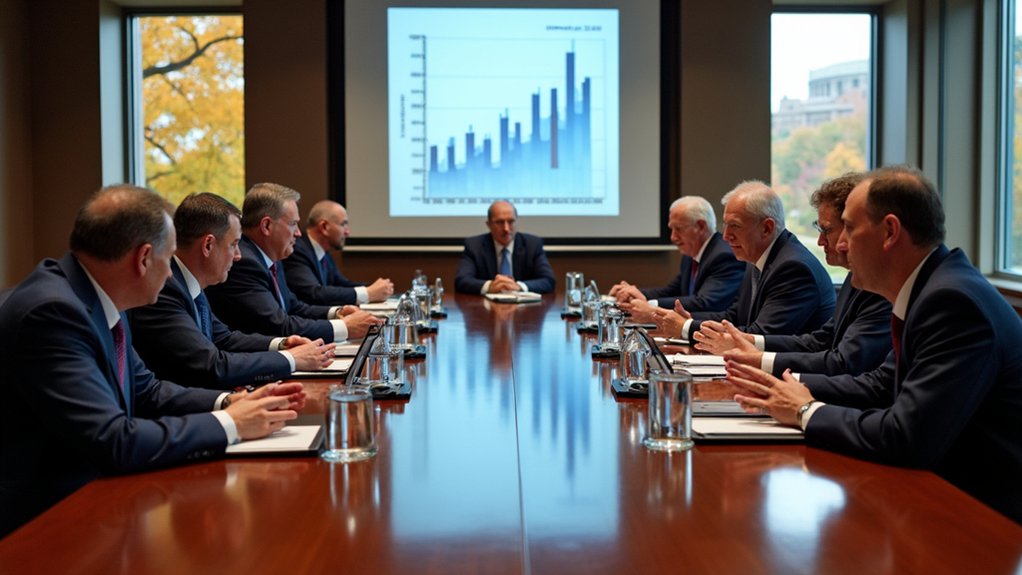Tariff tensions are dominating this week’s IMF-World Bank meetings, with US Treasury Secretary Scott Bessent leading high-stakes negotiations. Over 50 countries are desperately seeking relief from crushing import duties that reach up to 50% from the US and 125% from China. Markets are freaking out, gold is surging, and the IMF’s slashing growth forecasts left and right. Traditional global priorities like climate change and Ukraine? Sorry, they’ll have to wait. There’s more drama unfolding behind those closed doors.

How did tariffs manage to hijack one of the world’s most important financial gatherings? Simple – President Trump slapped sweeping import tariffs on over 50 countries, and now everyone’s scrambling to deal with the fallout.
The usual suspects – climate change and inflation – have taken a backseat while hundreds of finance ministers and central bankers try to figure out how not to get crushed by tariffs reaching as high as 50% from the US and a whopping 125% from China.
The global economy is taking it on the chin. The IMF’s growth forecasts are getting slashed, and markets are going haywire. It’s not just stocks anymore – even supposedly safe US Treasuries are on a roller coaster ride. Some experts are muttering the dreaded “R-word” (recession) if things don’t calm down soon. The recent surge in gold prices has added to market uncertainty.
Global markets are in chaos as tariff wars hammer growth forecasts, rattle Treasury bonds, and whisper warnings of recession ahead.
US Treasury Secretary Scott Bessent is the man of the hour, playing point person for Team America’s tariff negotiations. The administration’s dangling a possible 90-day tariff pause like a carrot, but there’s a catch – countries need to work out individual deals with the US. High-level talks are scheduled throughout the week. So much for multilateral cooperation.
The hallways of the IMF-World Bank meetings look more like a speed-dating event, with country delegations lining up for one-on-one talks with US officials. Poor countries are trying to be clever, linking tariff relief to debt forgiveness.
Everyone’s got a strategy to protect their exports and currencies from imploding. Financial markets are having a collective anxiety attack. There’s genuine fear that core funding markets could “freeze up” – and nobody wants that party favor. The Fed’s probably not getting much sleep these days.
The really ironic part? All those important discussions about climate change, Ukraine, and other global challenges are gathering dust while everyone obsesses over tariffs.
But that’s what happens when the world’s biggest economy decides to reshape global trade with a sledgehammer instead of a scalpel.





